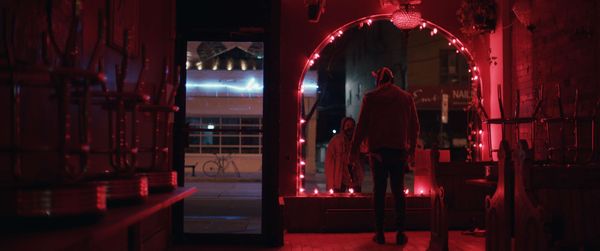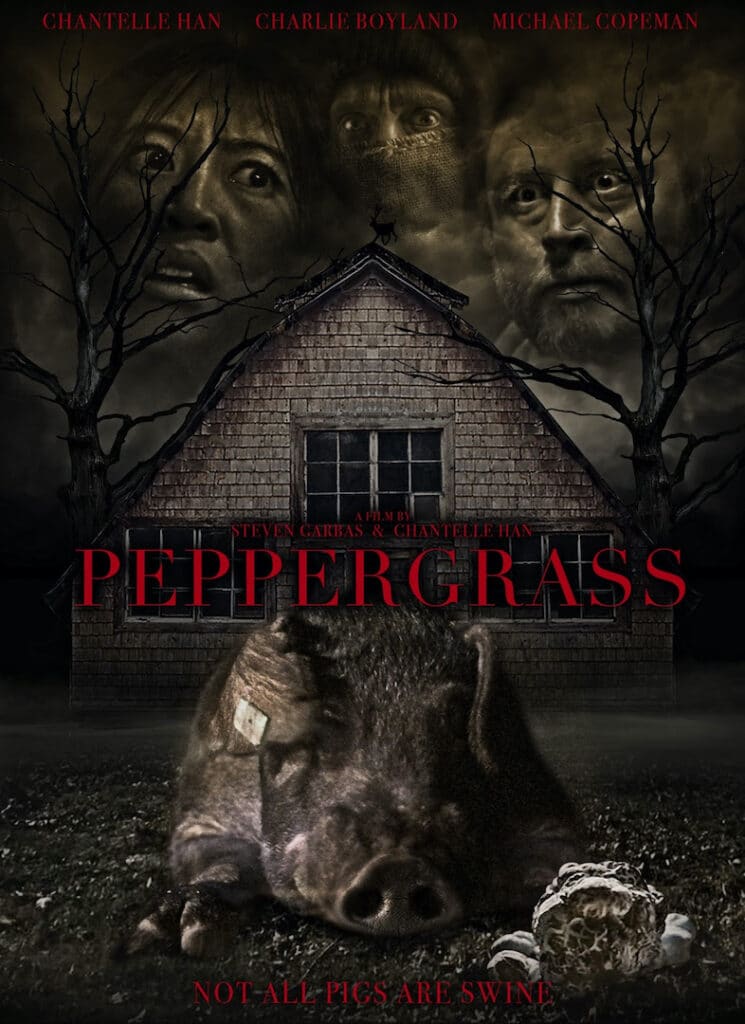Eye For Film >> Movies >> Peppergrass (2021) Film Review
Peppergrass
Reviewed by: Jennie Kermode

What makes a character in a film appealing to watch? Morris (Charles Boyland) laughs at Eula (Chantelle Han) for her tight leather trousers, which suggest that she thinks she’s in a different kind of movie. If her aim is to trade on simple sex appeal then the camera is, for the most part, not playing along. Intelligence can be appealing, but neither of these two has much of it, due to their really badly thought-out plan to steal valuable truffles from a trigger-happy former military man out in the middle of nowhere. What about plain old likeability? That’s not easy either when Eula is constantly snapping at Morris. But by the end of this film you’ll be rooting for her nonetheless, as she shows a level of sheer determination which puts her in the league of of Smilla or Jackie Brown, heroism in its purest form.
There’s a similar quality to Peppergrass itself. Made on a modest budget, it’s not flashy, nor particularly stylish. The story is simple, the characters not especially unusual, the dialogue simply serving a purpose. What makes an impression is the confidence with which it all comes together. Han co-directs with Steven Garbas, the two approaching it as if absolutely certain of what their audience wants, which is a good way to get an audience onside. This makes it very clear from the outset that they know where they’re going (even if the characters don’t) and that we shouldn’t make any assumptions about what they have in store for us.

it’s impossible to make a film about truffles now without falling under shadow of Michael Sarnoski’s Pig. Though very different in tone, Peppergrass bears some similarity in its disregard for familiar structure, coming across like a tale told in a bar by someone who has had a few too many. Little details give it colour. We’re in the height of the pandemic; Morris is out of N95s so substitutes a Mexican wrestling mask, an early warning of his naivety about what they are about to undertake. Eula is carrying around a letter sent to her dead grandfather which she doesn’t feel it would be right to open. The pair are clumsy from the start, giving away too much, not listening to advice. Eula is distracted by nausea; it won’t take viewers long to figure out that she’s pregnant. Morris is in the dark, literally and metaphorically. There is no amateurish effort to fill in their backstory. We take them as they are, and it’s enough.
Though sweet-natured in character, the porcine star of Pig reportedly hated Nicolas Cage and was aggressive towards him at every opportunity. The pig in this film is a far less gentle character, and its owner is no pushover either. The second half of the film switches into Revenant-style survival territory as Eula tries to make it through the woods, and though it’s overlong, Han’s performance makes it work. Again, she and Garbas resist the temptation to pack in extraneous incidents or show us more than necessary, relying on the woods themselves and her fear that she is being hunted to maintain the tension. All those rough edges to the character now become advantageous, making her feel more human, more relatable.
There is a hidden dimension to this film, which reflects more widely on the toughness women need to get through certain situations, and a little piece of knowledge it shares along the way could have a significant impact. That aside, it’s an impressive effort which does a lot with its limited resources, and although it may not impress on the scale of bigger productions, it should certainly get its creators noticed.
Reviewed on: 16 Jun 2023
















